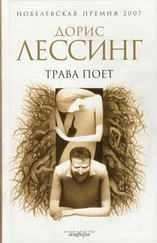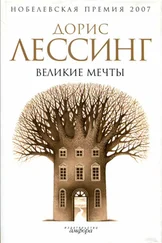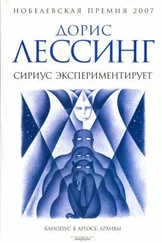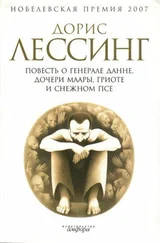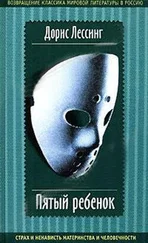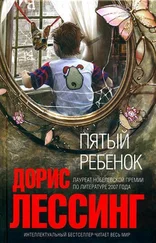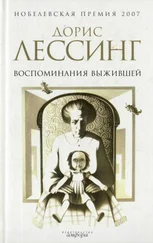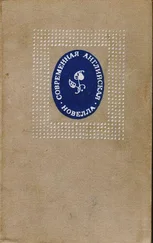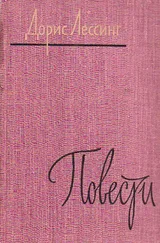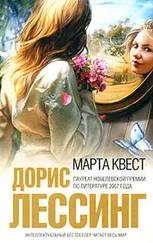Дорис Лессинг - Заметки к истории болезни [Notes for a Case History ru/en]
Здесь есть возможность читать онлайн «Дорис Лессинг - Заметки к истории болезни [Notes for a Case History ru/en]» весь текст электронной книги совершенно бесплатно (целиком полную версию без сокращений). В некоторых случаях можно слушать аудио, скачать через торрент в формате fb2 и присутствует краткое содержание. Город: Москва, Год выпуска: 1973, Издательство: Молодая гвардия, Жанр: Современная проза, short_story, на русском языке. Описание произведения, (предисловие) а так же отзывы посетителей доступны на портале библиотеки ЛибКат.
- Название:Заметки к истории болезни [Notes for a Case History ru/en]
- Автор:
- Издательство:Молодая гвардия
- Жанр:
- Год:1973
- Город:Москва
- ISBN:нет данных
- Рейтинг книги:5 / 5. Голосов: 1
-
Избранное:Добавить в избранное
- Отзывы:
-
Ваша оценка:
- 100
- 1
- 2
- 3
- 4
- 5
Заметки к истории болезни [Notes for a Case History ru/en]: краткое содержание, описание и аннотация
Предлагаем к чтению аннотацию, описание, краткое содержание или предисловие (зависит от того, что написал сам автор книги «Заметки к истории болезни [Notes for a Case History ru/en]»). Если вы не нашли необходимую информацию о книге — напишите в комментариях, мы постараемся отыскать её.
Заметки к истории болезни [Notes for a Case History ru/en] — читать онлайн бесплатно полную книгу (весь текст) целиком
Ниже представлен текст книги, разбитый по страницам. Система сохранения места последней прочитанной страницы, позволяет с удобством читать онлайн бесплатно книгу «Заметки к истории болезни [Notes for a Case History ru/en]», без необходимости каждый раз заново искать на чём Вы остановились. Поставьте закладку, и сможете в любой момент перейти на страницу, на которой закончили чтение.
Интервал:
Закладка:
She knew, thinking it all over afterwards, that the evening had been important for her with Stanley. Because of this, she did not go out with him for a week, she said she was busy talking to her cousin about the possibilities of a dress shop. She sat in her room thinking about Stanley, and when thoughts of Tony came into her mind, irritatedly pushed them away. If she could succeed with Stanley, why not with someone better? The two architects from that evening had eyed her all the following week: they did not, however, ask her out. She then found that both were engaged to marry the girls they had been with. It was bad luck: she was sure that otherwise they would have asked her out. How to meet more like them? Well, that was the trouble — the drive to the airport was a bit of a fluke; it was the first time she had actually met the seniors socially.
Meanwhile Stanley showed an impatience in his courtship — and for the first time. As for her, she was getting on for twenty-one, and all the girls she had grown up with were married and had their first or even their second babies.
She went out with Stanley to a dinner in the West End at an Italian restaurant. Afterwards they were both very passionate. Maureen, afterwards, was furious with herself: some borderline had been crossed (she supposed she still could be called a virgin?) and now decisions would have to be made.
Stanley was in love with her. She was in love with Stanley. A week later he proposed to her. It was done with a violent moaning intensity that she knew was due to his conflicts over marrying her. She was not good enough. He was not good enough. They were second-best for each other. They writhed and moaned and bit in the car, and agreed to marry. Her eight hundred pounds would make it easier to buy the house in a good suburb. He would formally meet her parents next Sunday.
'So you're engaged to Stanley Hunt?' said Tony.
'Looks like it, doesn't it?'
'Caught him — good for you!'
'He's caught me, more like it!'
'Have it your way.'
She was red and angry. He was serious.
'Come and have a bite?' he said. She went.
It was a small restaurant, full of office workers eating on luncheon vouchers. She ate fried plaice ('No chips, please') and he ate steak-and-kidney pudding. He joked, watched her, watched her intently, said finally: 'Can't you do better than than?' He meant, and she knew it, better in the sense she would use herself, in her heart: he meant nice. Like himself. But did that mean that Tony thought she was nice? Unlike Stanley? She did not think she was, she was moved to tears (concealed) that he did. 'What's wrong with him then?' she demanded, casual. 'What's wrong with you ? You need your head examined.' He said it seriously, and they exchanged a long look. The two of them sat looking goodbye at each other: the extremely pretty girl at whom everyone in the room kept glancing and remarking on, and the good-looking, dark, rather fat young accountant who was brusque and solemn with disappointment in her. With love for her? Very likely.
She went home silent, thinking of Tony. When she thought of him she needed to cry. She also needed to hurt him.
But she told her parents she was engaged to Stanley, who would be an architect. They would have their own house, in (they thought) Hemel Hempstead. He owned a car. He was coming to tea on Sunday. Her mother forgot the dukes and the film producers before the announcement ended: her father listened judiciously, then congratulated her. He had been going to a football match on Sunday, but agreed, after persuasion, that this was a good-enough reason to stay home.
Her mother then began discussing, with deference to Maureen's superior knowledge, how to manage next Sunday to best advantage. For four days she went on about it. But she was talking to herself. Her husband listened, said nothing. And Maureen listened, critically, like her father. Mrs Watson began clamouring for a definite opinion on what sort of cake to serve on Sunday. But Maureen had no opin ion. She sat, quiet, looking at her mother, a largish ageing woman, her ex-fair hair dyed yellow, her flesh guttering. She was like an excited child, and it was not attractive. Stupid, stupid, stupid — that's all you are, thought Maureen.
As for Maureen, if anyone had made the comparison, she was 'sulking' as she had before over being a model and having to be drilled out of her 'voice'. She said nothing but: 'It'll be all right, Mum, don't get so worked up.' Which was true, because Stanley knew what to expect: he knew why he had not been invited to meet her parents until properly hooked. He would have done the same in her place. He was doing the same: she was going to meet his parents the week after. What Mrs Watson, Mr Watson, wore on Sunday; whether sandwiches or cake were served; whether there were fresh or artificial flowers — none of it matterd. The Watsons were part of the bargain: what he was paying in return for publicly owning the most covetable woman anywhere they were likely to be; and for the right to sleep with her after the public display.
Meanwhile Maureen said not a word. She sat on her bed looking at nothing in particular. Once or twice she examined her face in the mirror, and even put cream on it. And she cut out a dress, but put it aside.
On Sunday Mrs Watson laid tea for four, using her own judgment since Maureen was too deeply in love (so she told everyone) to notice such trifles. At four Stanley was expected, and at 3.55 Maureen descended to the living room. She wore: a faded pink dress from three summers before; her mother's cretonne overall used for housework; and a piece of cloth tied round her hair that might very well have been a duster. At any rate, it was a faded grey. She had put on a pair of her mother's old shoes. She could not be called plain; but she looked like her own faded elder sister, dressed for a hard day's spring cleaning.
Her father, knowledgeable, said nothing: he lowered the paper, examined her, let out a short laugh, and lifted it again. Mrs Watson, understanding at last that this was a real crisis, burst into tears. Stanley arrived before Ms Watson could stop herself crying. He nearly said to Mrs Watson: 'I didn't know Maureen had an older sister.' Maureen sat listless at one end of the table; Mr Watson sat grinning at the other, and Mrs Watson sniffed and wiped her eyes between the two.
Maureen said: 'Hello, Stanley, meet my father and mother.' He shook their hands and stared at her. She did not meet his eyes: rather, the surface of her blue gaze met the furious, incredulous, hurt pounce of his glares at her. Maureen poured tea, offered him sandwiches and cake, and made conversation about the weather, and the prices of food, and the dangers of giving even good customers credit in the shop. He sat there, a well-set-up young man, with his brushed hair, his brushed moustache, his checked brown cloth jacket, and a face flaming with anger and affront. He said nothing, but Maureen on, her voice trailing and cool. At five o'clock, Mrs Watson again burst into tears, her whole body shaking, and Stanley brusquely left.
Mr Watson said: Well, why did you lead him on, then?' and turned on the television. Mrs Watson went to lie down. Maureen, in her own room, took off the various items of her disguise, and returned them to her mother's room. 'Don't cry, Mum. What are you carrying on like that for? What's the matter?' Then she dressed extremely carefully in a new white linen suit, brown shoes, beige blouse. She did her hair and her face, and sat looking at herself. The last two hours (or week) hit her, and her stomach hurt so that she doubled up. She cried; but the tears smeared her makeup, and she stopped herself with the side of a fist against her mouth.
It now seemed to her that for the last week she had simply not been Maureen; she had been someone else. What had she done it for? Why? Then she knew it was for Tony: during all that ridiculous scene at the tea table, she had imagined Tony looking on, grinning, but understanding her.
Читать дальшеИнтервал:
Закладка:
Похожие книги на «Заметки к истории болезни [Notes for a Case History ru/en]»
Представляем Вашему вниманию похожие книги на «Заметки к истории болезни [Notes for a Case History ru/en]» списком для выбора. Мы отобрали схожую по названию и смыслу литературу в надежде предоставить читателям больше вариантов отыскать новые, интересные, ещё непрочитанные произведения.
Обсуждение, отзывы о книге «Заметки к истории болезни [Notes for a Case History ru/en]» и просто собственные мнения читателей. Оставьте ваши комментарии, напишите, что Вы думаете о произведении, его смысле или главных героях. Укажите что конкретно понравилось, а что нет, и почему Вы так считаете.
![Дорис Лессинг Заметки к истории болезни [Notes for a Case History ru/en] обложка книги](/books/232730/doris-lessing-zametki-k-istorii-bolezni-notes-for-cover.webp)

